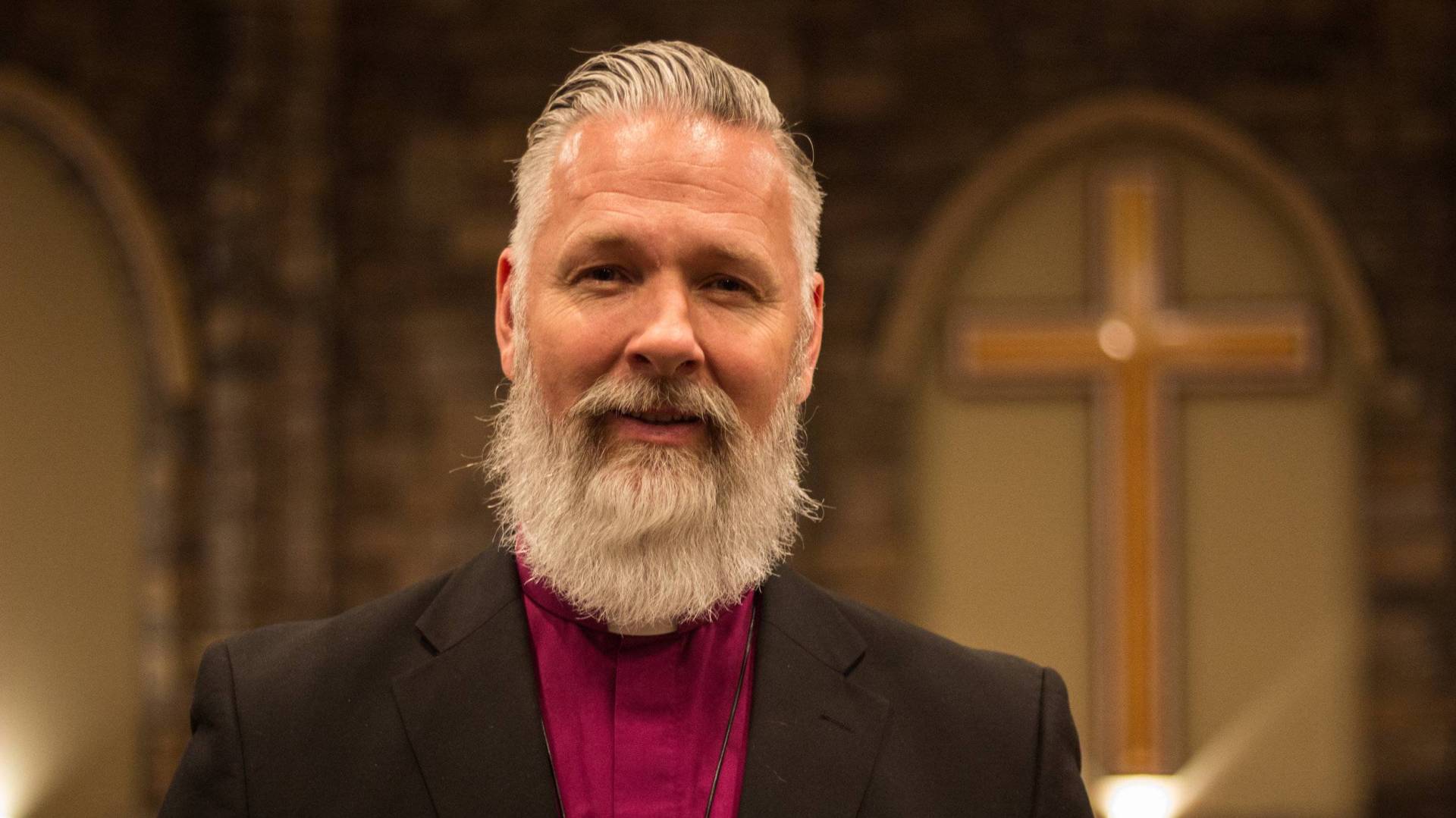Marshall Allen, an investigative journalist who insisted that uncovering truth was fundamental to Christian faith, died on May 19. The 52-year-old suffered a heart attack a few days earlier, according to his former employer ProPublica, one of the world’s leading investigative journalism organizations.
Allen’s unflinching reporting on the US health care industry brought relief to patients and some changes to how hospitals and insurers operate. He said the industry “exploits people’s sickness for profit”—but showing that took intense determination and extended investigations.
For one reporting project on poor hospital care in 2011, he interviewed 250 doctors, nurses, hospital administrators, and patients. The resulting series in the Las Vegas Sun was a finalist for the Pulitzer Prize, and the Nevada legislature introduced new requirements for hospitals as a result.
In another investigation, Allen reported that Dignity Health, a large religious health system that described itself as carrying on “the healing ministry of Jesus,” had refused to cover the medical expenses of an employee’s three-month-premature baby. Dignity claimed the woman hadn’t filled out the necessary paperwork and that she bore sole responsibility for a nearly $1 million hospital bill, though she had enrolled her baby with the insurer from the NICU.
After Allen called the company with questions, Dignity reversed its decision and retroactively covered the baby, who survived.
“Some people might think that Christians are supposed to be soft and acquiescent rather than muckrakers who hold the powerful to account,” he wrote in The New York Times. “But what I do as an investigative reporter is consistent with what the Bible teaches.”
Allen argued that the Bible “teaches that people are made in the image of God and that each human life holds incredible value.”
A Christian journalist, he said, should be comforted by God to be a comfort to others. A Christian journalist should rebuke deception and unfair practices. A Christian journalist should get all sides of the story, in line with Proverbs’ call for hearing multiple witnesses. And a Christian journalist should admit and correct mistakes with humility. He also shared this vision of Christian journalism in lectures to journalism students at The King’s College.
“He saw this work as redemptive and Christian in nature,” said Paul Glader, a friend of Allen’s and a former journalism professor at King’s. “He did amazing work investigating the health care bureaucracy and bullies, seeking out answers and truth for the little guy—all of us consumers.”
Allen grew up in a Christian family that was thrifty when it came to their own needs and generous with others. He recalled his parents giving lavishly to their local church while refusing to go on big vacations. That thrift allowed Allen to graduate college debt-free, which allowed him to work in ministry and then journalism. It also meant he drove a rusty 2002 Honda Odyssey.
He began his career in youth ministry, working for Young Life. He served three years with the ministry in Nairobi, Kenya. He began to enjoy writing when sending newsletters home from Kenya, his wife, Sonja Allen, told ProPublica.
When Allen and his family returned to the United States, he got a master’s in theology at Fuller Theological Seminary and began writing for Christian outlets, including Christianity Today and Boundless, a Focus on the Family publication.
Allen recalled run-ins with religious editors who objected to investigating Christian leaders.
“He was quite critical of the evangelical press for being too subservient to authority and unwilling to investigate,” according to Glader.
He also had conflicts with a secular editor who doubted whether a Christian could be a good journalist and said the word Christian “as if it were some kind of slur,” he wrote.
He eventually landed at local news outlets in Southern California. He advanced to a job at the Las Vegas Sun, where he first focused his attention on health care. His journalism and publishing colleagues described him as someone with moral clarity, humor, courage, and curiosity.
“He was truly a person like no one else I’ve ever known. He would have been intimidating because of his directness, confidence, and fearlessness except that he wasn’t, because he was so kind and unjudgmental,” said Emily Laber-Warren, director of the Health and Science Reporting program at the City University of New York’s journalism school, where he taught.
Allen also tried to adjust his fellow evangelicals’ view of mainstream journalists. He largely felt that his colleagues embraced his faith.
“I think, sometimes, conservative Christians are completely ignorant about the way the media works. And I also think liberals are completely ignorant about the way the Christian world works, right? There’s so much ignorance on both sides,” he told World Radio.
In addition to journalistic investigations, Allen committed himself to helping fellow journalists, journalism students, and patients caught in the maze of the US health system.
He wrote a how-to book on navigating medical billing called Never Pay the First Bill. The book’s review section on Amazon is filled with people describing how his reporting helped them negotiate bills and get out of medical debt. Author Leah Libresco Sargeant credits his book with helping her resolve a $1,400 bill for her daughter’s care.
“He’s fighting people who systematically profit off of human misery and vulnerability, and it would be easy to let that curdle into contempt,” she told CT. “Instead, he writes generously about people who fight back and never loses his warmth.”
After leaving ProPublica in 2021, Allen wrote a Substack newsletter documenting individual cases of medical billing gone wrong.
Glader, formerly at King’s, said Allen also never took himself too seriously, but had “infectious joy” that countered what could have been discouraging work.
That joy mixed with rigor showed up in stories like the one he did about why eyedrops spill out of people’s eyes. He began by writing that the “good news” was that spilling wasn’t the user’s fault. The “bad news” was that drug companies had designed the drops to be wasteful.
Over the years, Allen wrote about death several times. It was not an anxious topic for him. He saw it as a spur to “love and good deeds,” he said after his father died in 2022.
“I know this sounds dark, but I have a sober appreciation for death,” Allen explained. “Death will bring us all to our knees and test what we believe. One of my favorite Bible verses, Ecclesiastes 7:2, says it’s better to go to a ‘house of mourning’ than it is to celebrate at a ‘house of feasting. For death is the destiny of everyone; the living should take this to heart.’”
“Death is my destiny and it’s also yours. Let’s take that to heart and let it change how we live.”
Allen is survived by his wife, Sonja Allen, a women’s minister at 121 Community Church, and their three sons, Isaac, Ashton, and Cody.









































